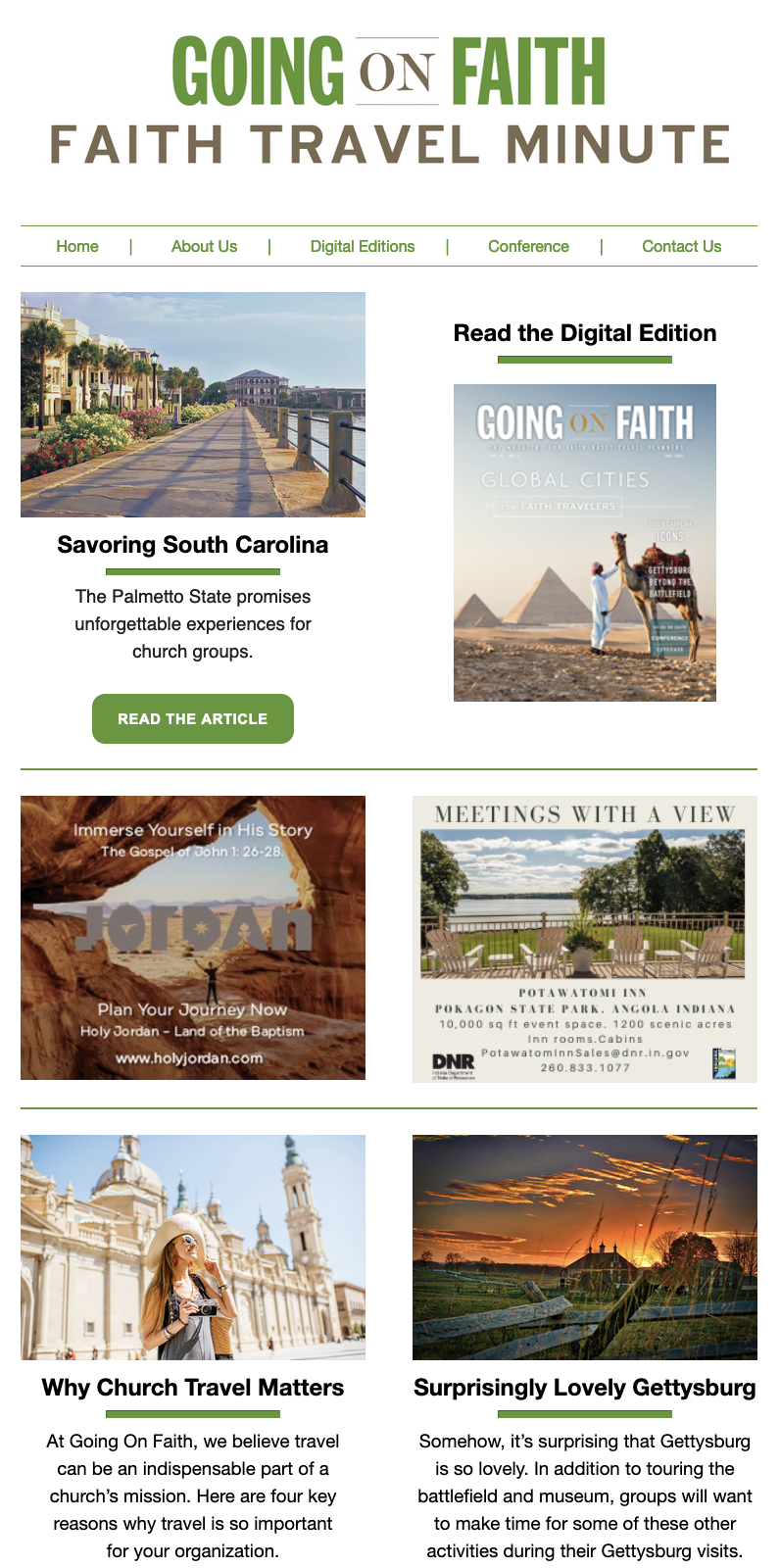Some of the most impactful spiritual experiences take place outside of a church.
At a basic level, your church group’s travel activities probably look a lot like most any other tour group’s — you gather with some like-minded friends, travel via motorcoach, visit attractions, stay in hotels and eat in restaurants. But yours is not just any tour group. Because you have a higher purpose in mind.
At their best, faith-based trips can usher people into deep spiritual experiences. Some of those can feel more authentic or meaningful than what typically happens at church on Sunday.
Here are five subtle ways to create space for spiritual impact on your next trip — without making it feel like a church service.
Later Starts
Christian author John Mark Comer struck a chord in popular culture several years ago when he published “The Ruthless Elimination of Hurry,” a book that inspired thousands of people to pursue spiritual growth by intentionally slowing their pace of life. It’s an outlook that might serve faith-based travel groups well, too. Instead of starting the day early and cramming as much activity as possible into the itinerary, consider a lighter schedule and a later start, giving your travelers time for independent mindfulness, reflection and prayer.
Time Outdoors
When it comes to forging connections with a higher power, few experiences can match the effectiveness of spending time immersed in the wonders of nature. Time outdoors can help people relieve stress, center themselves and reframe their perspective on their place in the universe. You can facilitate this by creating opportunities for your travelers to spend quiet, slowly paced time in the scenic settings that are unique to each destination the group visits.
Acts of Generosity
Faith leaders throughout the centuries have consistently taught that generosity is a key to contentment, fulfilment and growth. Most travel is inherently self-focused by default, but it doesn’t have to be. You can help your travelers grow by creating opportunities for acts of generosity during your trips. This could mean being generous with their time, for instance, by spending part of the trip volunteering with a local ministry or nonprofit. It could also mean being generous with their resources by identifying a need or a cause in the communities they visit and contributing to it financially.
Intentional Conversations
One of the great benefits of group travel is that it sets the stage for new relationships to form and for existing ones to blossom. Much of that happens through organic conversation, but you can help catalyze that growth by suggesting conversation topics that will take people deeper than surface-level small talk. Whether it’s at a group dinner or during longer periods on the motorcoach, consider giving people conversation prompts or thought-provoking questions that may draw them into deeper connections with each other — and with God.
Intergenerational Experience
Much of church travel is siloed by generations — the senior adult Bible study group takes one trip, while the youth group takes another. Though there are some benefits to traveling with people from a similar background, there may be even more benefit to cross-pollinating age groups. Young travelers may find sources of wisdom, encouragement and mentorship; older folks could find new vitality in spending time with and serving the next generation. Opening up even one trip a year to the entire congregation could pay dividends that extend far beyond the duration of the itinerary.










